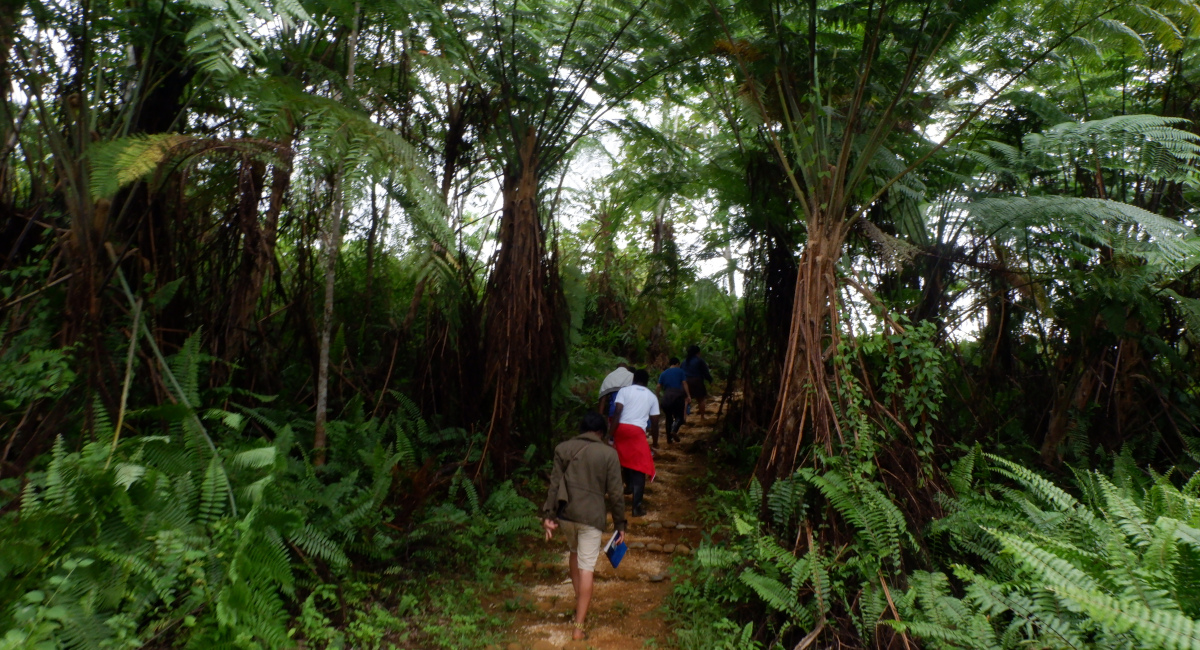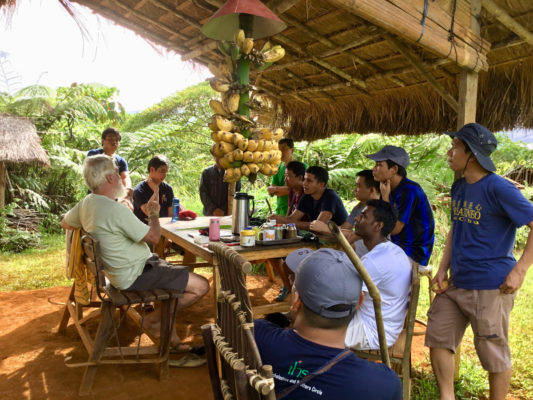
Promoting Reconciliation with Creation (RwC) as a shared value and priority in JCAP ministries and with its partners is a continuing narrative greatly re-affirmed by the Universal Apostolic Preferences (UAPs) issued early last year by Father General.
Caring for our common home has never been more critical as global temperatures reached another record high in 2019, despite the warnings of the 2018 Special Report on Global Warming of 1.5℃ (SR15) by the Intergovernmental Panel on Climate Change (IPCC) to deeply reduce global net human-caused CO2 emissions by about 45 per cent from 2010 levels by 2030 and reach net zero by 2045.
This year, the region experienced the worst bushfires in southeastern Australia in decades, burning more than 10 million hectares of forests and lands, more than the forest fires in the Amazon, and an estimated half a billion animal deaths. Aggravated by temperatures that soared to more than 40 degrees Celsius and an extended drought, firefighters have been trying to manage the fires and hoping for a cooler climate and rainfall. There have been 25 deaths reported and more than a thousand homes destroyed, but official reports have yet to be provided as the fires continue in January 2020.
A high-pressure system over Japan kept extreme heat over 24 of its prefectures in late July to early August, and this heatwave led to 57 deaths from heat-related issues and 18,000 hospitalised. The 2019 typhoon season in the Pacific is reported as above annual average with 29 named storms, 17 typhoons, four super typhoons, and 52 depressions. Extreme and prolonged rainfall caused massive flooding in major parts of Jakarta in April and by year-end.
Earthquakes and volcanic eruptions, such as Taal Volcano in the Philippines in January 2020, are part of the hazards in many countries in the region (in the Pacific Ring of Fire) and the deaths, evacuations, and damage to homes and livelihoods take a massive toll especially on the poor and vulnerable.
In the Asia-Pacific Disaster Report 2019 prepared by the UN Economic and Social Commission for Asia and the Pacific (UNESCAP), climate change and environmental degradation are increasingly linked to the “relentless sequence of disasters” that hit the region. Damage is greatest where the poorest are: indigenous communities, rural uplands, coastal communities, and in the urban margins of rapidly expanding cities. A useful framework that can be used in focusing critical action is its identification of key hotspots where fragile environments merge with critical socio-economic vulnerabilities: transboundary river basins (such as the Mekong), ring of fire, Pacific small island developing states, sand and dust storm risk corridors.
The need for urgency, depth, and more active response to JCAP’s identified priorities on ecology and migration, as well as the engagements with indigenous communities and the youth through the various ministries is affirmed with the UAPs, setting the direction of our work journeys for the next 10 years.
JCAP-RwC is focused on the development of an Ecoteam with initial active members from the Provinces/Regions of Australia, Indonesia, China, Myanmar, Philippines, Timor-Leste, Micronesia, Korea, and communications with interested participants from Cambodia. Discernment on the contribution and inputs to the JCAP Apostolic Plan 2020-2024 continues, with the UAPs as a major foundation and inspiration. Disaster Risk Reduction and Climate Action are emerging as primary focuses, inspired in part by the youth.

Participation in key JCAP meetings such as the Extended Consult in Hong Kong in July with Fr General Arturo Sosa, the JCAP Social Apostolate meeting in Yogyakarta, Indonesia in August with Social Justice and Ecology Secretariat (SJES) Secretary Fr Xavier Jeyaraj, and the Extended Consult in Manila, Philippines in October helped in the networking and opportunities for collaboration with other ministries. For the 50th anniversary (Golden Jubilee Congress) of SJES, four identified processes emerged during the Congress and offered as horizons for the future work of the Social Apostolate: transformation, collaboration, synodality, and the creation of new narratives. A moving letter to the martyrs shared at the close of the Congress provided inspiration and hope in deepening commitment with sustained discussions of the UAPs, as well as the shared history of the Social Apostolate since Fr Pedro Arrupe’s time.
Engaging with Arrupe scholastics through the Culture, Youth and Laudato Si’ Spirituality Workshop and with Jesuit novices as part of their mission trials with Ecojesuit Coordinator Fr Pedro Walpole facilitating are recurrent offered activities at Balay Laudato Si’ in Bendum, Bukidnon, Philippines. The JCAP-RwC Spirituality for Action workshop is also an annual activity for JCAP ministries undertaking ecology activities, as well as development workers, religious, seminarians, scientists, students, teachers, and young professionals.
Reconciliation with Creation as a JCAP priority aligns with many people-based movements that seek greater action and response. Active participation with and contribution to global processes, such as the UN Sustainable Development Goals and Agenda 2030; the global UN climate change conferences, such as the forthcoming COP25, facilitated through the global Ecojesuit network (through the Jesuit conferences); and other communities of practice need to be supported and strengthened.
In a region with so much diversity in languages and cultures, there is a need for more effective translation and re-interpretation of the UAPs in our ministries, and thus generate better collaboration and integration of the social apostolate and its priorities. As a working example, the creation of Reconciliation with Creation advisory groups in each Province/Region/Mission is one path by which varying levels of collaboration can be undertaken.
Joining and supporting the RwC Advisory Group in the Australian Province and initial talks with the Justice in Mining network in Asia Pacific continue. There is a deep collaboration with Ecojesuit, the global ecology network of Jesuits and partners, with active participation in regular webinars and support for Asia Pacific initiatives with the local church in Asia Pacific and Oceania on Laudato si’ and integral ecology. School strikes for climate were also actively supported and will be a continuing activity as students and other youth sustain the calls for change and demands for climate action. Support was also provided in the ongoing global dialogue process that the Philippine Commission on Human Rights (CHR) undertook through the National Inquiry on Climate Change. The recommendations in the final report was presented by CHR Commissioner Roberto Cadiz during COP25 Chile in Madrid, Spain in December. The effort is to explore the nexus of human rights and climate justice in national human rights institutions in Asia Pacific, building up climate litigation in the process.
In the Philippines, JCAP-RwC was an active partner in the development of the Culture and Integrity from the Ground: A Local Forum, in March, where over 40 participants joined UN Special Rapporteur on Indigenous Peoples, Victoria Tauli-Corpuz. Young people, government employees, and indigenous people gathered to gain a better understanding of the relationships between culture, community, and land.
Communication through social media and regular write-ups for online media platforms, along with the production of brief videos are undertaken in the creation of new narratives for change.
While the discernment process by which the UAPs were identified involved a bottom-up approach, there is a need to bring these preferences back to their re-interpretation in our work and in our communities, and the new energy and strength that these bring.
The UAPs are a timely and critical reminder of the most pressing human development concerns in our world today, manifested starkly in the Asia Pacific region where many of the world’s poorest and most vulnerable, with a huge youth population, can be found. Climate justice and climate action are integral concerns in ensuring quality human development.
Sylvia Miclat
JCAP Reconciliation with Creation Coordinator

